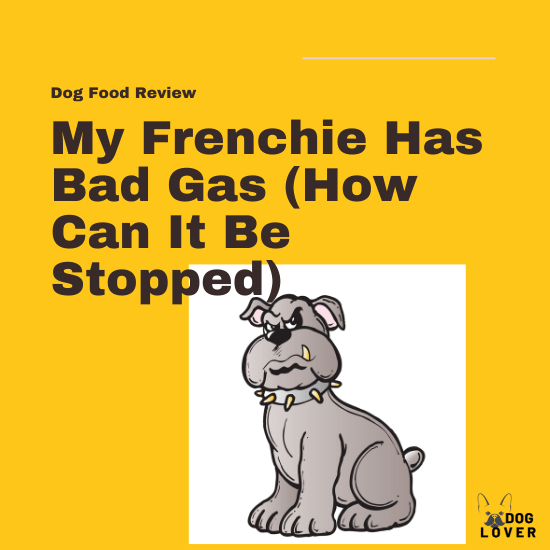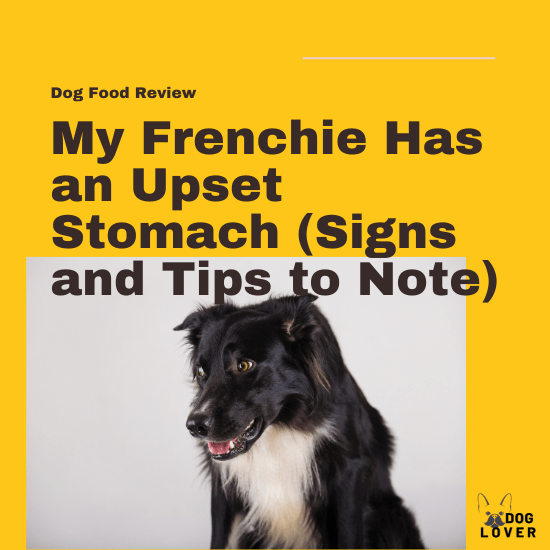Keeping your hyperactive puppy at bay can be challenging
You enjoy being with your puppy when he is relaxed and calm
But this may not a daily routine as those little pooches can be quite aggressive
Do you wonder how you can keep them in one place?
Well, here are ten proven ways of keeping those cheeky guys at bay.
Let’s dive in for more.
Why is my puppy hyper and biting?
The reasons why your puppy is hyper and biting are:
- Sleep deprivation: Puppies require 12-16 hours of sleep daily. This is a regular trend for most puppies. Fewer sleep hours make them agitated.
- Frustration: Frustration can result from being forced to do what they don’t want to or having fewer physical activities. A frustrated puppy might want to bite you or keep running up and down.
- Teething: Puppies experience discomforts with teething, and one way to relieve this is through biting.
- Overexcitement: Overexcitement can make puppies hyper as they have not yet mastered the skill of controlling their emotions
Hyperactive dog symptoms?
Hyperactive dog symptoms include:
- Low concentration
- Inability To stay calm
- Poor eye contact
- Above normal heart rate
- Increased sweating
- Impulsiveness
- Aggressive behavior like snapping
- Poor social skills
- Spinning in rounds
10 Top Tips on Keeping Your Hyperactive Puppy Contained
Take a walk
Going for an evening walk with your puppy encourages physical activity as you will force your puppy to follow you briskly or run after you to catch up with you.
This further redirects the high energy levels to something useful since walking aids in burning calories, thus lowering the risks of obesity and heart problems.
In addition, taking an evening walk exhausts your puppy, thus ensuring a higher probability of falling asleep faster. Sleep has a calming effect on the body.
You can play with your fur baby in your garden or compound if you are an indoor person.
Mental stimulation
You can curb hyperactive behavior by the use of activities that challenge your dog’s mind.
This not only promotes memory levels, but Many puppy-friendly calming songs can also keep your puppy actively engaged, thus pushing away the need to become fussy and irritated.
To positively stimulate the mind, use puzzles and games that engage the mind.
You can also play outdoor games that encourage creativity. These include hiding toys or balls and making your puppy look for them.
This further encourages physical activity and makes puppies exhausted, thus enabling sleep.
During sleep, the sympathetic nervous system relaxes; consequently, its fights and deactivates the flight responses.
Balanced diet
Consuming some types of food can be one of the major causes of hyperactive behavior in puppies.
Meals that contain lots of sugar are a recipe for restlessness as they increase blood sugar levels, which leads to higher energy production.
Your puppy would want to release this energy by being hyperactive.
Furthermore, other hyperactive behavioral ingredients include milk, beans, soy, chocolate grapes, and tomatoes.
Always ensure your puppy eats a balanced diet that combines carbohydrates, proteins, and vitamins.
Your vet can give you a food guide for your fur baby
Read our article on Dog-Friendly Snacks That Your Frenchie will Love Anytime
Give your puppy a job
Giving your puppy a job to do is an excellent way to lower hyperactivity.
This is because you are creating a new channel to redirect its high energy levels.
Your puppy burns his energy and, as a result, becomes too exhausted to engage in hyperactive activities.
Train your baby to follow commands and reward obedience with his favorite toy or snack
Jobs that your dog can do include helping with utensils, grooming himself, cleaning the compound, or carrying your backpack during evening walks
Being kept busy tires your puppy and promote regular sleep patterns
Audio therapy
Playing soothing music for puppies lowers hyperactivity levels since it has a calming effect.
We enjoy listening to soft classical music, especially when under stress. Similarly, puppies love soothing classical that lures them to sleep and a relaxed mode.
Make it a routine to have a quiet time where you play music in the background while you and your baby dance slowly or sit relaxed in a comfortable place.
Many puppy-friendly calming songs can be downloaded or bought from music stores.
Be careful, as some songs can encourage hyper behavior by making puppies dance hysterically.
Stay calm
Puppies tend to imitate their parent’s behavior. They, therefore, find it enjoyable doing what their parents are doing.
When you are stressed, and you find yourself pacing up and down, your puppy will follow suit to show solidarity with its master.
It is therefore of paramount importance that you stay calm despite any stressful episodes.
If you cannot control your emotions, stay away from your puppy and deal with your problems privately.
Staying calm when you are with your puppy also gives him a feeling that all is well, thus relaxing his mind.
Use scents
Dogs use their noses more than any other sense; hence engaging their noses can lower the probability of hyperactivity.
This stems from the fact that aromatic smells have a calming effect on the brain through the nose.
Using scents like lavender sends a signal o the brain, translated to a fully relaxed mind.
You can place your puppy’s favorite scent beside the bed or under the pillow to encourage the release of calming hormones.
Some dogs are allergic to scents; hence you should consult the vet before using them on your puppy.
Reward calm behavior
Dogs are like humans; therefore, they love to be appreciated when they do something good.
Whenever your puppy demonstrates relaxed behavior, you can pat him on the back or cuddle him. This not only boosts his self-esteem but also encourages your puppy to continue being calm.
Consequently, a relaxed mind means fewer episodes of agitation.
Furthermore, you can reward calm behavior through other means like gifting your puppy a nice toy or preparing their favorite meal.
You will train your dog’s mind to associate calm behavior with proper treatment, great gifts, and good meals.
Discourage over-excitement
Whenever your puppy is overly excited, you should employ different tactics to discourage the over-excitement
These include taking their favorite snack from them, switching off their favorite night movie, avoiding eye contact, not talking to them, and pushing them away from you.
This gives your puppy a message that aggression is not good therefore avoiding it in the future.
You can discourage unwanted behavior while encouraging the desired behavior simultaneously using the reward and punishment models.
Consequently, hyperactivity goes down while calmness becomes the norm leaving both the pet parents and puppies happy and peaceful.
Use calming treats
A hyperactive puppy can be a pain in the neck, but you can lower this using calming treats available in dog food stores.
Most of these treats contain natural ingredients like chamomile, hemp, and melatonin hence safe for puppies.
However, you should consult the vet before using calming treats, as some dogs can have an adverse reaction to the active ingredients in the treats.
Go for vet- recommended treats and read the labels carefully to avoid giving your puppy treats with toxic additives like xylitol and chocolate, as they can be fatal for puppies.
How do I calm my energetic puppy down?
You can calm your energetic puppy by discouraging over-excitement, rewarding calm episodes, engaging him in physical activities, playing memory-boosting games, using smell therapy, playing soothing music, and staying calm yourself.
What do you do with an overactive puppy?
There are many tactics for dealing with an overactive puppy, including ignoring him, keeping him occupied, taking a walk, training on good behavior, using commands, and consulting the vet.
At what age do puppies usually calm down?
As puppies age, they become less aggressive.
Most puppies usually calm down at the age of six to nine months.
Hyperactivity ends at full maturity, which is between one and two years
How do I get my puppy to stop biting my hands and feet?
To stop your puppy from biting your hands and feet, carry his favorite toy.
Whenever he wants to bite, wave the toy in front of him
This will distract him.
How long does puppy biting last?
Puppy biting lasts for three to five months.
At five months of age, most puppies grow out of the biting stage.
However, some puppies may take longer or shorter periods
What are signs of aggression in puppies?
Puppies’ main signs of aggression are excessive and hostile barking, possessiveness, especially for toys and food, biting, lunging, unrelenting stare, need to rule or dominate, mounting, nipping, and growling.
How do I stop my puppy from jumping up and biting my clothes?
To stop your puppy from jumping up and biting your clothes, make sure that his favorite toys are within reach.
Whenever he wants to bite, give him a chewable toy
How do you punish a puppy?
The following are some of the ways of punishing a puppy
- Punish immediately
- Be consistent and firm
- Reward good behavior
- Use isolation method
- Train your puppy on good behavior
How do you teach a puppy no?
- Make sure your puppy is hungry
- Hold his favorite snack
- When he wants to snatch the snack, shout no and take it away
- After a few times, give him the snack
Hyperactive puppy breeds?
Hyperactive puppy breeds include Chihuahua, Boxer, Beagle, Australian shepherd, Border collie, Brittany spaniel, Belgian malinois, Airedale terrier, Poodle, Siberian husky, Vizsla, Shetland sheepdog, Staffordshire bull terrier, Weimaraner, and Yorkshire terrier.
Final Thoughts
The tips given above are well researched and would come in handy whenever you encounter an aggressive puppy.
You can curb aggressive puppy behavior using various methods, including staying calm, taking a walk, training on good behavior, discouraging over-excitement, rewarding good behavior, using calming treats, and employing smell therapy.
You can use one or all of these tips to calm your puppy.
Even after trying the above tips, excessive hyperactivity may signal a more profound problem requiring more attention.
Contact your vet if any of these tips have no positive impact on your overactive companion.


